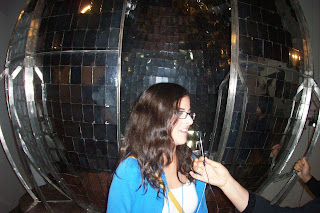
Gwangju biennaleis the first biennale “manifestation of contemporary art”of Asia founded in 1995 celebrate 50th independence day. It was founded in the memory of the inspiring moment of Gwangju in 1980.

This time the theme is “round table” which exhibits six co-artistic directions. The art pieces exhibition in Gwangju biennale was impressive, attractive and worth recognizing the importance of working together.
The artistic work from USA, Korea, Australia, Pakistan, China, India and Brazil was awesome. Under the theme of ROUNDTABLE, the 9th Gwangju Biennale is described as an open-ended series of collaborations curated by a team of six Co-Artistic Directors - Nancy Adajania, Wassan Al-Khudhairi, Mami Kataoka, Sunjung Kim, Carol Yinghua Lu, and Alia Swastika. Over 92 artists, artist groups, and temporary collectives from 43 countries will participate in the exhibition, which runs from September 7th to November 11th, 2012.
According to the Organizers
The set of artists and art works selected for this year’s biennale differ not only from previous Gwangju Biennales but most biennales in that the artists and art works were selected through the unprecedented collaboration of six directors/curators, which falls outside of the usual frame of single or joint directorships/curatorships.

In the way that the six sub-themes of the biennale emerged through the ongoing conversation among the six co-directors, the artists and art works were not predetermined by each separate director for her subtheme. Rather, these selections were part of the very collaborative process that characterises both the ethos and practice of ROUNDTABLE.
The artists and art works thus embody the impossibility of unanimity or unconditional collaboration while challenging us to consider a new kind of unity or whole that arises from the connections as well as collisions (of social, geographical, political and personal histories and experiences) among the co-directors as much as the selected art works and artists.

ROUNDTABLE invites us to consider diverse forms of collectives within historic and contemporary contexts, the tension between belonging and anonymity, and the affects that temporality, spatiality and mobility have on the individual and the collective.
The guide described every detail in such a nice way that all the participants got interested in visit. The guide specifically mentioned me, when he was describing the work of an artist from my country“Pakistan”. I feel really honored at the moment.

















No comments:
Post a Comment